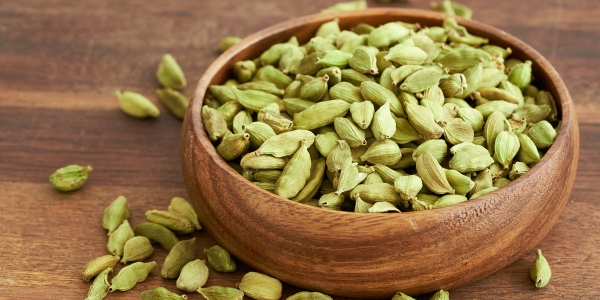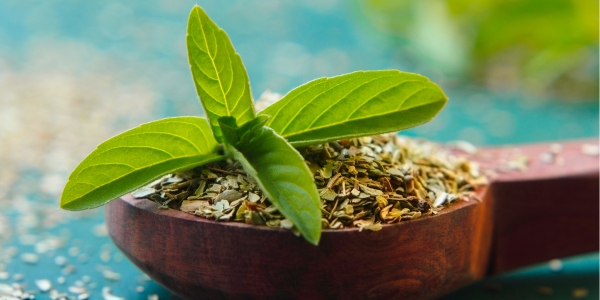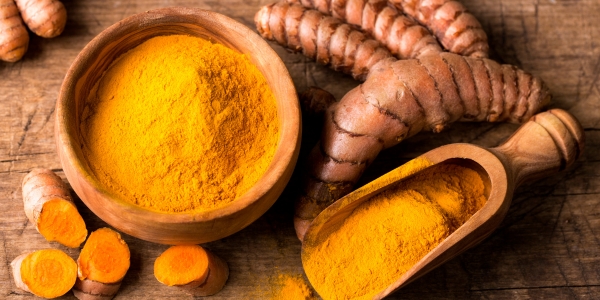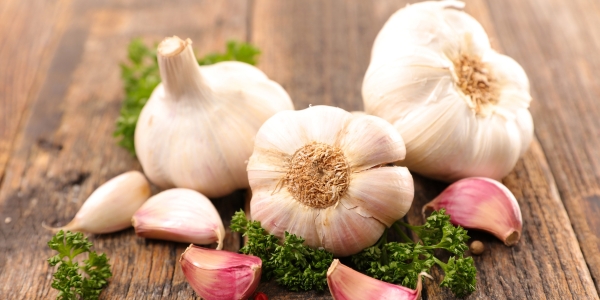Ayurvedic herbs and spices are essential in promoting overall health and wellness. Ayurveda is an ancient Indian medicinal system that promotes physical, mental, and spiritual well-being. The comprehensive approach includes lifestyle changes, diet, and exercise. Ayurvedic herbs and spices are essential components of Ayurvedic treatment. Ayurvedic practitioners claim that the drugs guard against sickness, improve mental health, and promote digestion.
Let us delve into some famous and infamous Medicinal Herbs and Spices backed by Ayurvedic practices:
Mint (Pudina)

In Sanskrit, Mint is called Pudina. It's a well-liked cooling herb with a sharp aftertaste and sweet flavour. Mint comes in various forms, the most popular being peppermint and spearmint. Both have fragrant menthol, which helps open up the lungs and revive the senses. Mint is a great digestive aid that feeds the digestive fire (AGNI) without becoming too hot. It can help minimize acid indigestion and is popular in digestive teas. Strong fumes from it can help the respiratory system by relaxing and widening the airways in the lungs.
Cardamom (Elaichi)

Cardamom is considered Tridoshic (beneficial for balancing the three doshas) in Ayurveda for anyone attempting to maintain PITTA balance in their bodies.
Cardamom is regarded as a great digestive, particularly helpful in lessening intestinal gas and bloating. It works wonders for restoring KAPHA balance, especially in the lungs and stomach. It helps to calm VATA as well. Chewing on the seeds helps to freshen one's breath.
Cumin (Ajwain)

A distinct part of the Indian kitchen, it is produced from Cuminum cyminum seeds with an earthy, nutty, and spicy flavour. According to research, cumin can help manage blood lipids and protect the liver from a high-fat diet. Furthermore, cumin may help prevent type 2 diabetes by reducing blood sugar levels and boosting insulin sensitivity. It may also prevent heart disease by boosting HDL (good) cholesterol and decreasing triglycerides and LDL (bad) cholesterol.
Tulsi (Holy Basil)

Tulsi has proven to be quite helpful in defending our bodies from various illnesses and ailments affecting the liver, skin, and kidneys. It includes strong antioxidants that can help reduce blood pressure and cholesterol levels, making it one of the greatest heart-healthy foods. It is also beneficial for diabetes since it has hypoglycemic characteristics, which are believed to help lower blood glucose levels. Tulsi is advised as part of a diabetic diet. Due to its health advantages, Tulsi is aptly known as the 'Queen of Herbs'. Tulsi has also been examined in modest clinical trials for its benefits on cognitive function. One study found that it improved stress symptoms by 39% compared to a placebo.
Bay Leaf ( Tej Patta)

Bay Leaf, also known as Tej Pata in India, is an aromatic leaf with a milder fragrance than cinnamon bark. It is often used as a culinary spice in India to boil tea. However, due to its high vitamin A, vitamin C, iron, potassium, calcium, and magnesium content, it is also employed in numerous natural beauty treatments.
According to Ayurveda, bay leaves are warming in nature, balancing the Kapha and Vata doshas while increasing the Pitta dosha. Myrcene, a component of Bay Leaves, is commonly extracted to produce essential oils in the perfume industry and has a broader purpose in traditional remedies worldwide. Bay Leaf's advantages include anti-inflammatory and antioxidant capabilities.
Neem

Neem is well-known for its bitter flavour. The term "Neem" is derived from the Sanskrit Nimba, which means the bestower of good health. Neem has extraordinary healing properties and is used to treat various ailments. It is utilized in around 75% of Ayurvedic medicines. Neem contains antibacterial, antimicrobial, and antifungal properties. It is an effective blood purifier and detoxifier. It helps treat acne, eczema, and other skin conditions. It is also found in toothpaste because it helps maintain oral hygiene to prevent dental cavities and infections. Neem paste is also beneficial to hair and helps reduce dandruff.
Turmeric (Haldi)

Turmeric, the spice that gives curry its distinctive yellow hue, is an integral part of Indian food and is impossible not to find in every household.
Curcumin, the major active component, is a potent antioxidant and anti-inflammatory agent. Test-tube studies suggest that it may be as effective as, if not more successful than, some anti-inflammatory medicines, but without the side effects. As exercise or certain prescription medicines do, Turmeric may also help prevent heart disease by boosting blood flow. According to human research, turmeric may help with sadness and anxiety symptoms.
Furthermore, turmeric components may assist in maintaining brain function by raising brain levels of brain-derived neurotrophic factor (BDNF). Low levels of BDNF have been linked to illnesses like depression and Alzheimer's.
Garlic (Lahsun)

Garlic, an essential culinary spice, is an Ayurvedic herb that reduces total and LDL cholesterol levels by 5-6% in persons with high cholesterol. It may also lower blood pressure and fasting blood sugar while shielding against cancer.
.
CONCLUSION
Ayurvedic medicine, often known as Ayurveda, is one of the oldest kinds of medicine, originating thousands of years ago in India. Thus, research into the efficacy of Ayurvedic treatment for diabetes, constipation, and gastritis has yielded promising results, which may lead to increased usage of Ayurvedic products.


